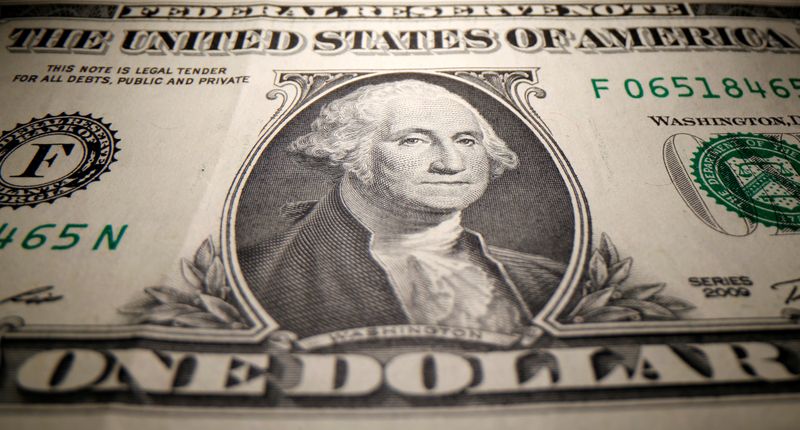By Tom Westbrook
SINGAPORE (Reuters) – The U.S. dollar steadied on Tuesday as rising coronavirus cases and doubts over the speed and size of U.S. stimulus tempered financial markets’ upbeat mood, while investors were also cautious ahead of the Federal Reserve’s review later in the week.
In overnight trading, bonds rallied, hard-running U.S. equity markets cooled and the cautious move into safer assets lifted the dollar index a little bit to 90.353, which is roughly in the middle of a range it has kept for the past two weeks. [US/][.N]
The euro and yen are likewise hemmed in, with the euro unable to break resistance around $1.2190 while the continent grapples with new COVID-19 infections and fresh lockdowns.
The common currency slipped slightly overnight to $1.2142 and held there in early Asia trade. The yen was steady at 103.76 per dollar, while the risk-sensitive Australian and New Zealand dollars softened marginally.
“Markets have come a long way on the hope that COVID goes away and governments spend a lot of money,” said Westpac currency analyst Imre Speizer.
“Both of those have stalled at the moment, and so markets will stall as well,” he said, leaving the kiwi, for example, in “indecision mode” between $0.7150 and $0.7240.
“One of those needs to break to give you direction for the next couple of weeks,” Speizer said. The kiwi was last at $0.7198 and the Australian dollar at $0.7714. Sterling was steady at $1.3670.
Investors had thought that Democrats’ control of U.S. Congress, won at Senate runoff elections in early January, could smooth the passage of enormous pandemic relief spending.
Bets the U.S. dollar keeps falling, to extend a downtrend which began last March, hit an almost decade high last week, positioning data shows.
However risk appetite has waned in the meantime as familiar disagreements have emerged to so far delay passage of President Joe Biden’s $1.9 trillion.
At the same time, coronavirus cases are surging and U.S. economic data has pointed to a flagging pace in the recovery, leaving investors looking for the Fed to maintain easy policy at its Wednesday meeting, while bracing for lacklustre growth figures on Thursday.
“Q4 (U.S.) GDP is expected to show a very sharp deceleration,” ANZ analysts said in a note to clients. “Support from the Fed and fiscal intervention is badly needed and we expect the (Fed) will dismiss any suggestion of early tapering.”



